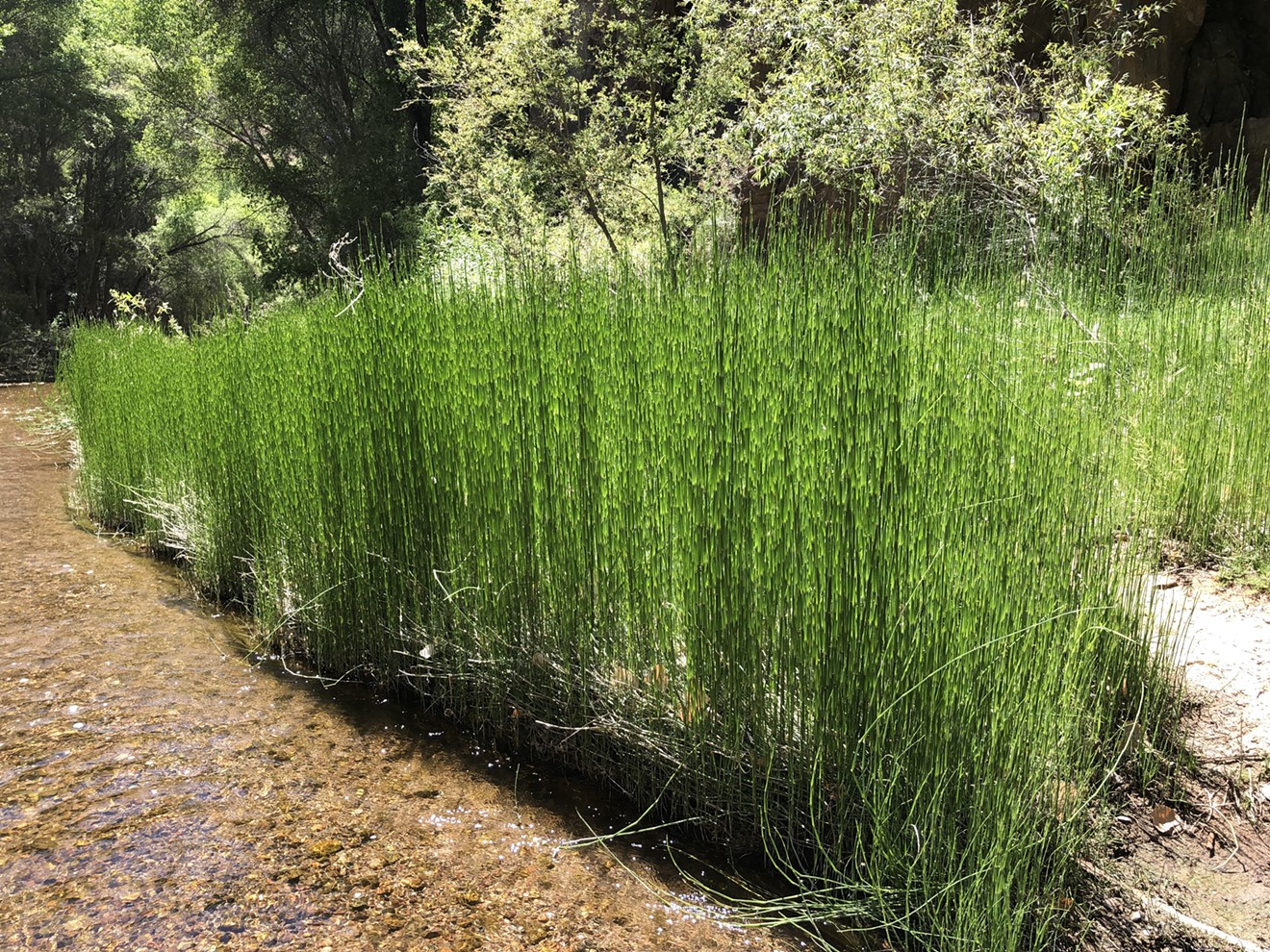The U.S. Environmental Protection Agency and Department of the Army are moving forward with a plan to revise a Trump-era rule change that put 90 percent of Arizona waterways at risk.
Unfortunately, says an environmental group that previously sued over the change, the fix might not come fast enough to prevent damage.
"The concern is what's going to happen in the meanwhile... a lot of damage could happen in Arizona over the coming year," said Brett Hartl, the government affairs director for the Center for Biological Diversity in Washington D.C. "You'll see from us and others a general disappointment that it's not going to happen faster, but it's better than nothing."
The EPA and the Army, under the Trump administration, rolled back the "Waters of the United States" rule in October 2019. Developers and agricultural lobbyists praised the change. But it was a blow for advocates of clean water, who feared it would basically grant industries the right to pollute unless state authorities stepped in — a far-from-certain outcome in Republican-dominated Arizona. Experts said the change eliminated federal protections for more than 90 percent of waterways, including 120,000 miles of intermittent streams, wetlands, and certain small bodies of water.
The Center for Biological Diversity and other groups sued the government last year over the change, noting that defining the Waters rule more narrowly meant taking away protections from ephemeral waters like desert arroyos, and "millions of acres of rivers, streams, lakes, wetlands, impoundments, and other waterbodies." The groups added in their lawsuit that more than 100 species could be devastated, including the desert pupfish, the Gila chub, the Southwestern willow flycatcher, and the Chiricahua leopard frog.
The change also led the U.S. Army Corps of Engineers to decide earlier this year that the planned Rosemont copper mine in the Santa Rita Mountains near Tucson didn't need a permit under the federal Clean Water Act.
Now under new leadership from the White House, the EPA and the Army announced on Wednesday that the Department of Justice will file a motion requesting remand of the rule and initiate a new rulemaking process that rolls back the Trump rollback. The new change will "better protect our nation's vital water resources" and stop "destructive impacts" already underway.
"After reviewing the Navigable Waters Protection Rule as directed by President Biden, the EPA and Department of the Army have determined that this rule is leading to significant environmental degradation,” said EPA Administrator Michael Regan in a prepared statement.
"The lack of protections is particularly significant in arid states, like New Mexico and Arizona, where nearly every one of over 1,500 streams assessed has been found to be non-jurisdictional," an EPA news release states. "The agencies are also aware of 333 projects that would have required Section 404 permitting prior to the Navigable Waters Protection Rule, but no longer do."
The EPA and Army's new rules hope to: protect water resources; include the "latest science and the effects of climate change on our waters;" emphasize a rule "with a practical implementation approach for state and Tribal partners;" and have input from various stakeholders like landowners, the agricultural industry, states, indigenous tribes, and groups including "disadvantaged communities with environmental justice concerns."
(See the EPA's full news release below.)
In a separate statement to Phoenix New Times by EPA spokesperson Nick Conger, the EPA described the finding that 1,500 streams in Arizona and New Mexico were "non-jurisdictional" (meaning no permits were necessary for development) as "very different" from the previous status.
"Ephemeral streams provide numerous ecosystem services and there could be cascading negative downstream effects, including on water supplies and habitat integrity. Additionally, Tribes in arid areas have also indicated that they will disproportionately suffer from the reduction in protections," Conger said. "Some Tribes have estimated that the 2020 rule removes more than 80% of stream miles within their jurisdictions from Clean Water Act protections. These Tribes lack the authority and the resources to independently regulate surface waters within and upstream of their lands, and therefore cannot protect their scarce waters from upstream dischargers, such as uranium and coal mines."
Hartl said that after Biden got elected, the groups dropped their lawsuit regarding the Waters of the United States rule, figuring "there was no way" Biden wouldn't deal with it. The only problem now is that it may take a year to "unravel" the change with the government's rule-making process, during which time some projects that negatively affect waters could be approved.
If the Trump rule gets repealed as planned, the government's guidance on permitting development near waterways reverts back to rules modified in 1986. Environmentalists are familiar with those rules and consider them "generally protective," he said.
"If that's where we end up, that's okay," he said. "It's far better than the Trump rule."
A more "durable" solution to protecting waterways in Arizona and elsewhere, Hartl said, "may take many years."
[
{
"name": "Air - MediumRectangle - Inline Content - Mobile Display Size",
"component": "18478561",
"insertPoint": "2",
"requiredCountToDisplay": "2"
},{
"name": "Editor Picks",
"component": "16759093",
"insertPoint": "4",
"requiredCountToDisplay": "1"
},{
"name": "Inline Links",
"component": "17980324",
"insertPoint": "8th",
"startingPoint": 8,
"requiredCountToDisplay": "7",
"maxInsertions": 25
},{
"name": "Air - MediumRectangle - Combo - Inline Content",
"component": "16759092",
"insertPoint": "8th",
"startingPoint": 8,
"requiredCountToDisplay": "7",
"maxInsertions": 25
},{
"name": "Inline Links",
"component": "17980324",
"insertPoint": "8th",
"startingPoint": 12,
"requiredCountToDisplay": "11",
"maxInsertions": 24
},{
"name": "Air - Leaderboard Tower - Combo - Inline Content",
"component": "16759094",
"insertPoint": "8th",
"startingPoint": 12,
"requiredCountToDisplay": "11",
"maxInsertions": 24
}
]












